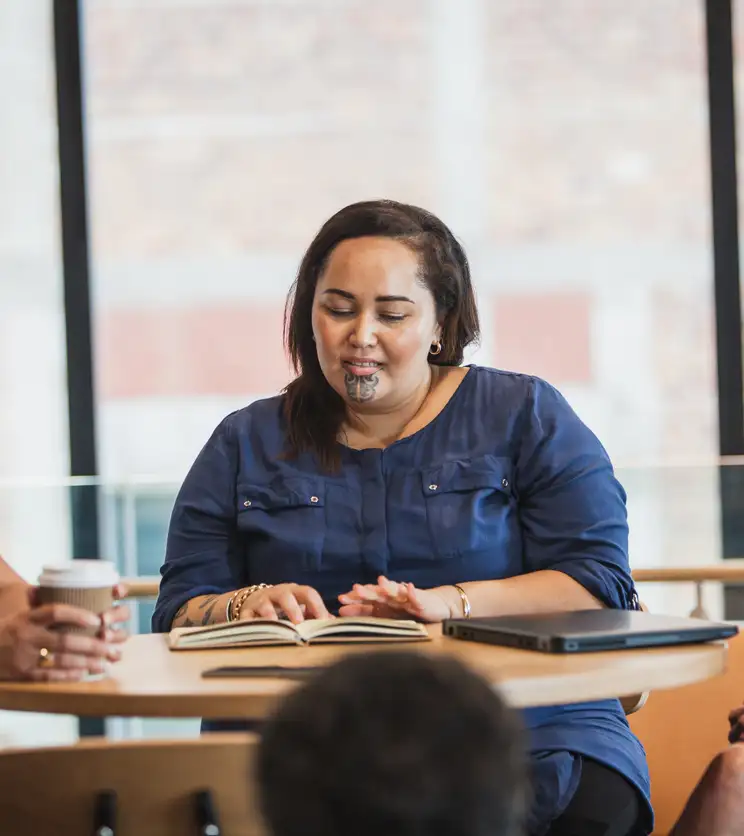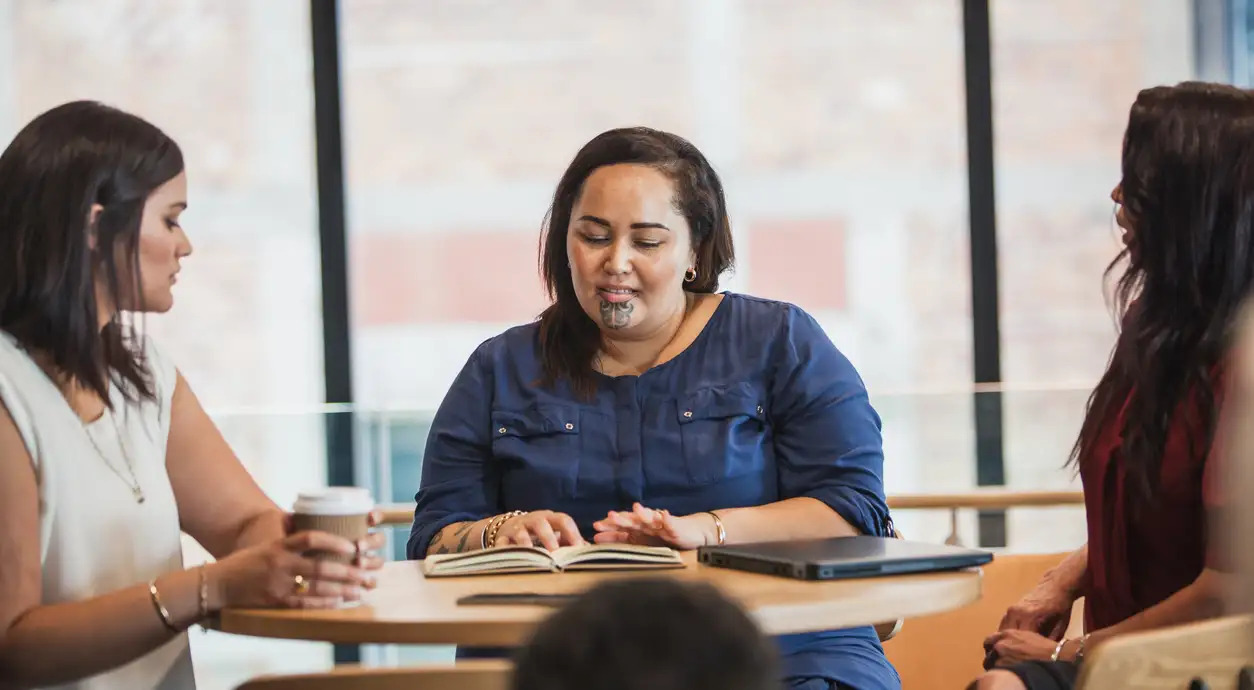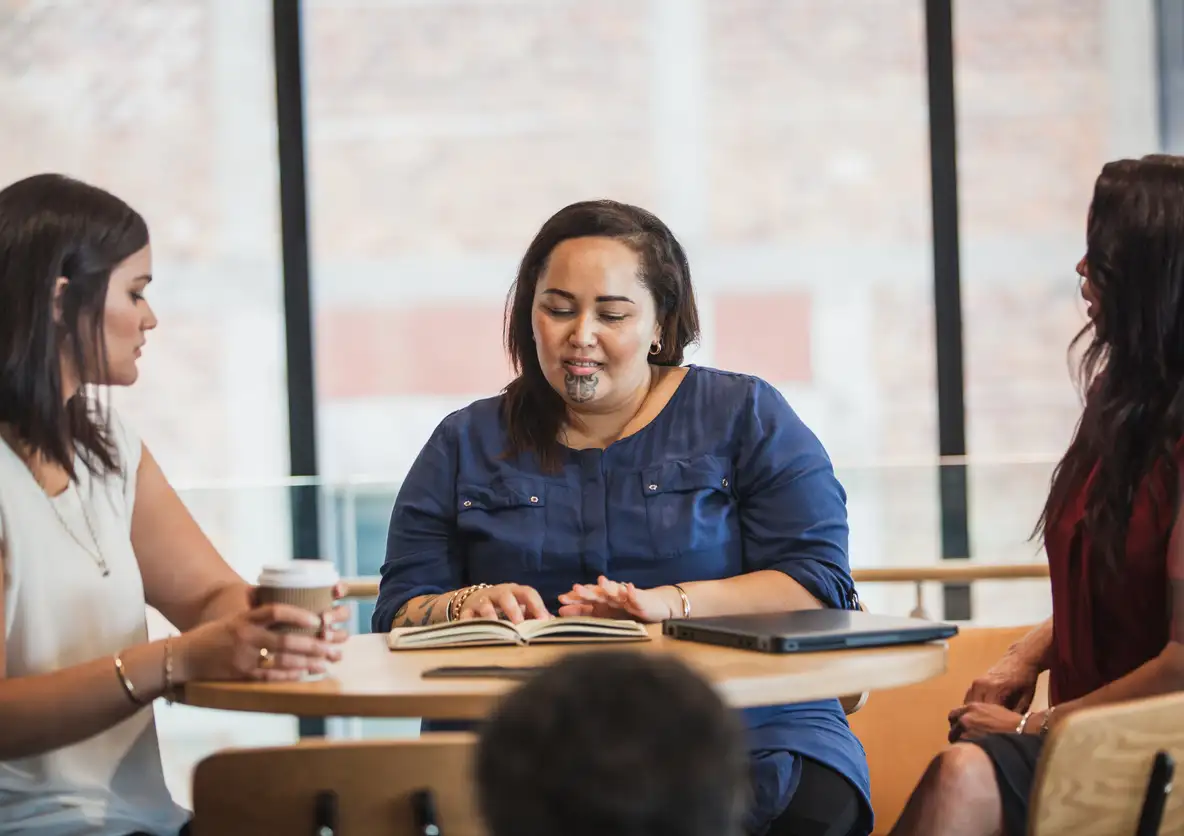Manapori kauawhi
-
Inclusive democracy



LGNZ believes in inclusive democracy and provides resources to promote and support diversity and participation in local government.
A strong local democracy is an inclusive one. We work in partnership with others to facilitate networks and provide support and resources so that everyone can participate, thrive and be represented by local government.
Local democracy is strongest when it includes and reflects all voices in a community.
That’s why our work is focused on increasing the diversity of representation and on ensuring all communities and elected members are included, valued and given the support they need to have their voices heard.
We have a bold ambition to create the most active and inclusive local democracy in the world.
Our work to achieve this ambition is driven by our diversity, equity and inclusion strategy, our research and brought to life through the kaupapa of our networks and committees, our learning and development programme and campaigns to promote the local body elections
Our Diversity, Equity and Inclusion (DEI) strategy
We work across five streams to positively influence local government as part of our DEI strategy. They are:
- Embedding Te Ao Māori within the sector
- Improving council culture and wellbeing
- Building sector capability around cultural awareness
- Increasing diversity of representation
- Encouraging greater public and community engagement through storytelling and education
Our research
In 2022, our Elected Members Experience survey found that nearly half of respondents have experienced racism, gender discrimination, or other forms of harmful behaviour while doing their job in public office.
While the survey results make for tough reading, we know that to shift the dial, we need to start with acknowledging that there is a problem and find ways to address it.
105 anonymous responses were received from across 56 local authorities. Key findings include:
- 50% of respondents experienced racism, gender discrimination in their role
- 43% of respondents experienced other harassment, prejudiced, threatening or derogatory behaviours in their role
- Close to a quarter of respondents are not sure how to report instances of harassment and/or discrimination
- Less than a third of respondents felt connected with other elected members in their workplace.
Read our media release on the Elected Members Experience survey or you can read the full results of the survey.
In 2022, we also completed a survey of voters and non-voters. The willingness of people to turn out and vote tells us something about a community’s level of interest in its local or national democracy. Democracy maters – the ability to choose leaders and hold them accountable is fundamental to responsive and inclusive government, and crucial to ensuring that governments respond to community needs.
Read our survey summary
Our networks, committees and programmes
We support the establishment and ongoing operation of several different networks and committees, and their delivery of specific programmes. Each of our groups aim to enable more effective representation and engagement with elected members who represent a diverse range of communities.
- Te Maruata – Māori network: Te Maruata whānui is for all Māori elected and appointed members. The Te Maruata Committee is a sub-committee of the LGNZ National Committee.
- Te Āhuru Mōwai programme: Te Āhuru Mōwai – A Safe Haven is a tuakana-teina support programme established in 2022 by Te Maruata and LGNZ. It provides a culturally safe space for Māori elected members to support and learn from each other.
- Young Elected Members (YEM) Network: Young Elected Members (YEM) are members under the age of 40. The YEM is sub-committee of the LGNZ National Committee.
- Community Boards Executive Committee (CBEC): Community Boards play a vital role in local government in Aotearoa New Zealand. CBEC advocates for community boards across the motu and supports their development, capability and impact.
Learn more about each of our networks, committees and their programmes
Support and guidance
Learning and development with Ākona
Designed by and with local government, Ākona is LGNZ’s new learning and development programme, specifically designed for elected members.
It includes learning areas such as building your understanding of Te Tiriti o Waitangi, tikanga, working with Māori and strengthening your skills in cultural awareness and community engagement.
Policy Advice - Guidance on parental leave and childcare allowances
Elected members are not subject to the Parental Leave and Employment Protection Act 1987 and therefore aren't entitled to statutory ‘parental leave’. Each council must decide whether elected members can have a leave of absence to care for their child.
We want to remove the stigma of caring for our children/tamariki while in local government which is why we have created an easily understood and adoptable policy and guidance for councils.
Supporting more candidates to run for office
If you're considering running for local government in the future, be sure to check out our resources for candidates to help you hit the ground running. Don't miss out on the opportunity to make a difference in your community! The next local government elections are in 2025.
Learn more about local government, inclusive campaigning and what it means to be an elected member
Ngā Pōti ā-Taiohi - Youth Voting resources
We advocate for increasing civics education where students learn more about the democratic process and their rights as citizens and we provide resources for teachers to support them in the classroom.
Our Ngā Pōti ā-Taiohi – Youth Voting Programme gives children/tamariki a chance to try out the election process by discussing what’s important to them, voting for candidates on real issues, and comparing their results against the official election results.
And we have a teacher’s guide, designed to help teachers’ run youth voting in their school or classroom.
Learn more about the Youth Voting Programme